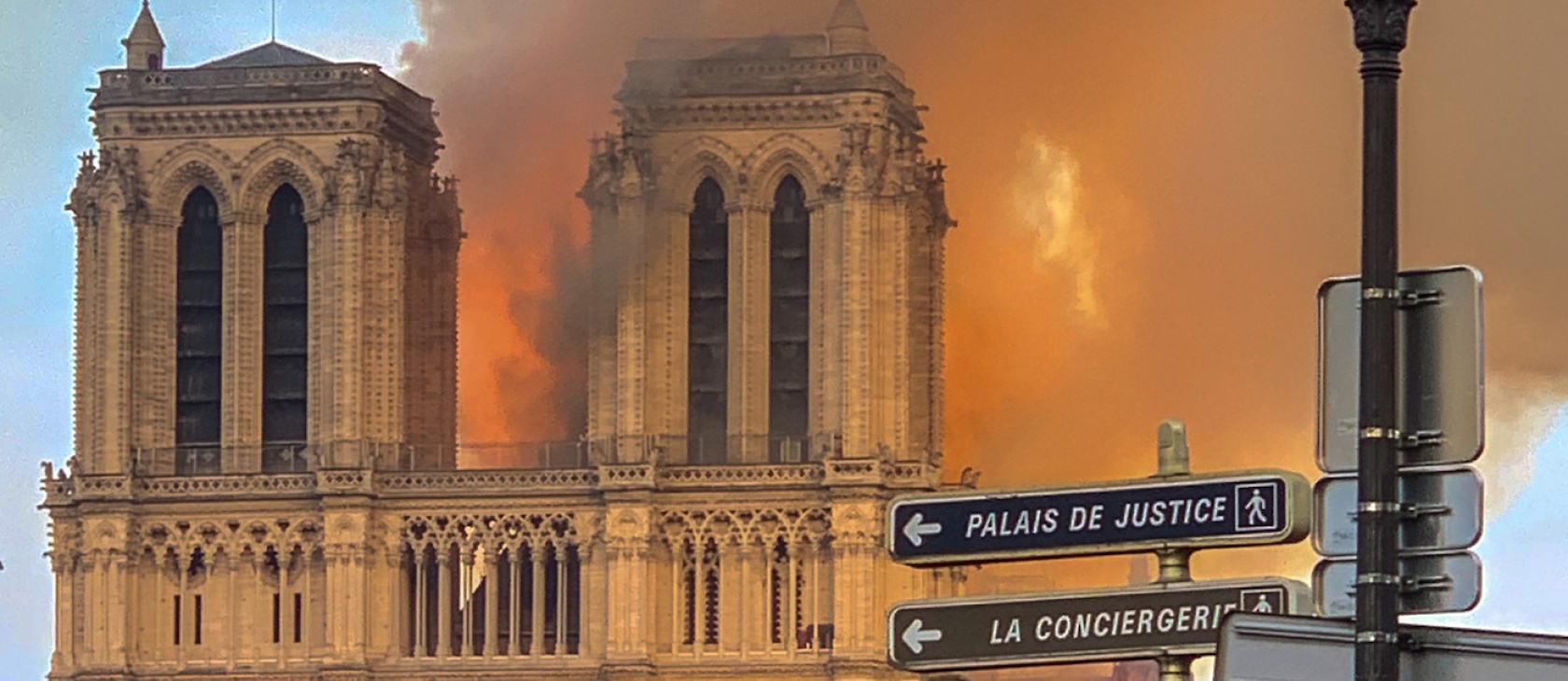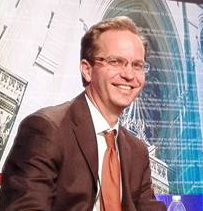Like most big stories, the world discovered last night’s fire devouring Paris’ Notre Dame Cathedral at breakneck speed on social media. Images and video reached billions within a few minutes, nearly as fast as the dramatic flames took to completely engulf the ancient roof and send its tallest spire hurdling into a billowing smoky abyss.
The images were horrifying, especially to those have personally visited and profited from the spiritual peace found inside the lofty Medieval magnum opus of religious architecture. Receiving roughly 14 million visitors per year, Notre Dame – Our Lady – is a mother and “muse” to many Christian souls far and wide.
In a National Catholic Register article, French journalist Solène Tadié reacted from Rome: “It is the very soul of the French that these flames have wounded. The Cathedral of Notre Dame made Paris the rightful capital of France. From Nerval to Gustave Doré, Claude Monet, Victor Hugo, Charles Péguy, or even Walt Disney, it has been a muse for the greatest minds of the past 850 years of history.”
“Notre-Dame is not only the highest symbol of Catholicism in France, it is part of our world heritage,” she wrote.
Arthur Herlin, a fellow Parisian colleague in Rome and director of I.Media’s French Vatican news agency said he had been following the news closely throughout a sleepless night. Herlin, still in a state of disbelief early this morning, said that “Notre Dame Cathedral has endured centuries, nearly 1,000 years of French social upheaval.”
Herlin recalled he grew up in the shadows of Notre Dame, where his aunt runs a shop in the same quarter and frequently entered the cathedral. He said the arch symbol of French Catholicism has been a most “stable witness despite countless attacks against the faith, as with so many recent acts of terrorism, rogue vandalism, and even martyrdom in France’s churches.”
“Notre Dame,” he said, has stood the test of time and is “intact even after the French Revolution and its continued secular battles to take down Christianity. Miraculously, it also survived the bombing raids of two world wars.”
Through it all, Notre Dame Cathedral remained relatively unscarred until this day. It was “a sort of September 11 for us Parisians,” Herlin said.
Indeed, Notre Dame has always served as a source of spiritual capital and strength, a center from which the French Church has relaunched the Christian evangelization of its nation, the so-called “eldest daughter of the Church.”
Since its groundbreaking in 1163 with Pope Alexander III, the great French cathedral and its preachers have stood up against many a powerful foe while seeking to revitalize a country where currently only five to 10 percent of citizens regularly practice their Roman Catholic faith. It was in this very sacred space where Fr. Dominque Lacordaire, the outspoken man who brought back the Dominican Order to France after its brutal persecution by Napoleon Bonaparte, preached a series of fiery Lenten sermons from the pulpit. Here, under Our Lady’s protection and inspiration, a feisty and intelligent priest trained in legal prosecution put up one of the greatest battle of words to stem the seemingly unstoppable advance of 19th-century French secularism.
During Lacordaire’s “Conferences de Notre Dame,” preached in 1835, the Dominican was unintimidated by Paris’ irascible elite and powerful secular state officials. He endured, charmed, and ultimately succeeded in convincing his hardened jury of doubters to give Christian peace one more chance.
In an historical article we read “the overwhelming majority of [Lacordaire’s] audience ... was skeptical, unbelieving, rationalistic, one might say hostile to Catholic doctrine … [I]t was composed of scholars, literary men, artists, lawyers, politicians, Ministers of State, and officers in the Armies of France: and that [of] the French intellectuals [who] are probably the keenest minded in the world, those who seem more than others to have inherited the quick intelligence of the Greeks.”
Albert de Broglie, Lacordaire’s successor in the French Academy, said “the effect [of his preaching] was astonishing. His words seemed to leave the precincts of the sacred building and, as in the days of Christ, find the toll-gatherers amidst the noise of their business or their amusements.”
As compassionate Christians pour over Vatican press statements expressing “sadness,” “incredulity,” and “closeness,” and as they also applaud President Emmanuel Macron’s pledge to quickly rebuild the Paris cathedral, may the Holy Week inferno at Notre Dame serve as an oracle of what their personal witness to Christ involves. May they help bring sentimental non-believers back into such eminently beautiful sacred spaces of worship, not as art-loving bon vivants, but as meek and prayerful faithful seeking to serve a King who was greeted triumphally with palm branches upon entering Jerusalem before undergoing his Passion.
May all Christian believers, particularly in France, be reminded that they must put out the angry fires festering against their faith’s many aggressors in order to ignite healthy joyful spiritual flames – so as “to be as God fully wants us to be,” in St. Catherine of Siena’s words, “to set the world ablaze” where Christianity nowadays smolders.
(Photo credit: Milliped. This photo has been cropped. CC BY-SA 4.0.)














